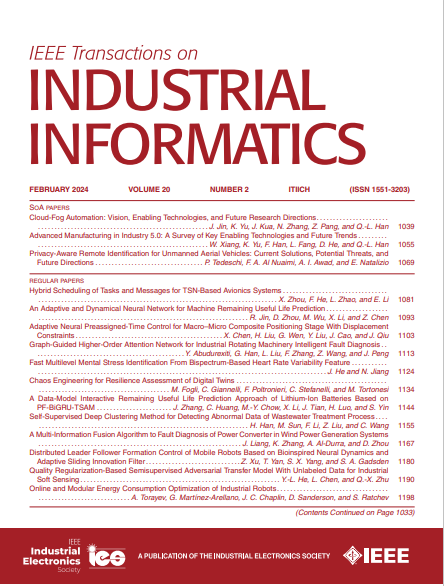考虑分布式光伏特性的配电系统虚假数据注入攻击
IF 9.9
1区 计算机科学
Q1 AUTOMATION & CONTROL SYSTEMS
引用次数: 0
摘要
随着碳中和和新型电力系统建设的推进,大量的信息设备不断接入配电系统,逐渐打破了配电系统原有的不可观察状态,使配电系统更容易受到虚假数据注入攻击。与现有的研究大多集中在不平衡网络上相反,很少关注分布式光伏(PV)的随机性和波动性对配电系统中ffdi的影响。本文针对分布式光伏高渗透率的配电系统,同时提出了FDIAs失效机理和改进的FDIAs方法。具体而言,基于无功优化过程,利用分布式光伏系统的随机性和波动性,显著降低了分布式光伏系统的隐身性。随后,提出了一种基于时变损失条件生成对抗网络的改进FDIA方法,提高了攻击的隐蔽性和有效性。最后,基于改进的IEEE 33总线测试系统的数值结果验证了失效机制和改进的FDIAs的有效性。研究结果可以为分布式光伏高渗透率配电系统对策的实施提供参考,为分布式光伏高渗透率配电系统场景的安全问题提出了严峻而紧迫的问题。本文章由计算机程序翻译,如有差异,请以英文原文为准。
False Data Injection Attacks in Power Distribution Systems Considering the Characteristics of Distributed Photovoltaic
With the advancement of carbon-neutral and new power system construction, numerous information devices are continuously connected to power distribution systems, gradually breaking the original unobservable state of power distribution systems and making them more vulnerable to false data injection attacks (FDIAs). Contrary to most existing research focusing on the unbalanced network, less attention has been paid to the influence of randomness and fluctuation of distributed photovoltaic (PV) to perform FDIAs in the power distribution system. In this article, the failure mechanism of FDIAs and the improved FDIAs method are proposed simultaneously for the distribution system with a high penetration of distributed PV scenarios. Specifically, based on the reactive power optimization process, the randomness and fluctuation of distributed PV are applied to decrease significantly the stealthiness of the FDIAs. Subsequently, an improved FDIA method, based on time-dependent loss conditional generative adversarial networks, is proposed to enhance the stealth and effectiveness of the attack. Finally, numerical results based on the modified IEEE 33 bus test systems demonstrate the effectiveness of the failure mechanism and the improved FDIAs. Research results can facilitate the execution of countermeasures for distribution systems with a high penetration of distributed PV, posing serious and pressing security concerns in power distribution systems with a high penetration of distributed PV scenarios.
求助全文
通过发布文献求助,成功后即可免费获取论文全文。
去求助
来源期刊

IEEE Transactions on Industrial Informatics
工程技术-工程:工业
CiteScore
24.10
自引率
8.90%
发文量
1202
审稿时长
5.1 months
期刊介绍:
The IEEE Transactions on Industrial Informatics is a multidisciplinary journal dedicated to publishing technical papers that connect theory with practical applications of informatics in industrial settings. It focuses on the utilization of information in intelligent, distributed, and agile industrial automation and control systems. The scope includes topics such as knowledge-based and AI-enhanced automation, intelligent computer control systems, flexible and collaborative manufacturing, industrial informatics in software-defined vehicles and robotics, computer vision, industrial cyber-physical and industrial IoT systems, real-time and networked embedded systems, security in industrial processes, industrial communications, systems interoperability, and human-machine interaction.
 求助内容:
求助内容: 应助结果提醒方式:
应助结果提醒方式:


